How to Embrace the Art of Slow Living

Busyness has become a kind of idol in our culture. It’s almost a claim to status to be busier than your neighbor. When we’re not working, we’re constantly distracting ourselves with TV, social media, and even the news. In the meantime, mental health is declining, anxiety is on the rise, and our physical health is suffering too.
Slow Living is a popular movement right now, especially since the pandemic hit in 2020. A slower approach to life may not solve all our mental and physical health issues – but I do think that our inability to slow down, prioritize, and spend our time intentionally and meaningfully is a major obstacle on the path to good health and appropriate priorities.
Slow Living and Simple Living are sometimes used interchangeably. While they do overlap (actually they overlap a lot), Slow Living is not exactly the same as Simple Living.
Simple Living embraces many of the same values as Slow Living. When most people hear that someone is adopting a Simple Living lifestyle, they picture an idyllic rural setting and a focus on self-sufficiency and frugality. Slow Living, however, can be practiced anywhere and can look many, many different ways. In essentials, it’s taking the time to focus on your values and pursue what’s most important to you.
Let’s dig a little deeper.
(As an Amazon Associate I earn from qualifying purchases. This means that if you purchase an item via a link on my website I earn a small commission at no extra cost to you.)
What is the Slow Living Trend?
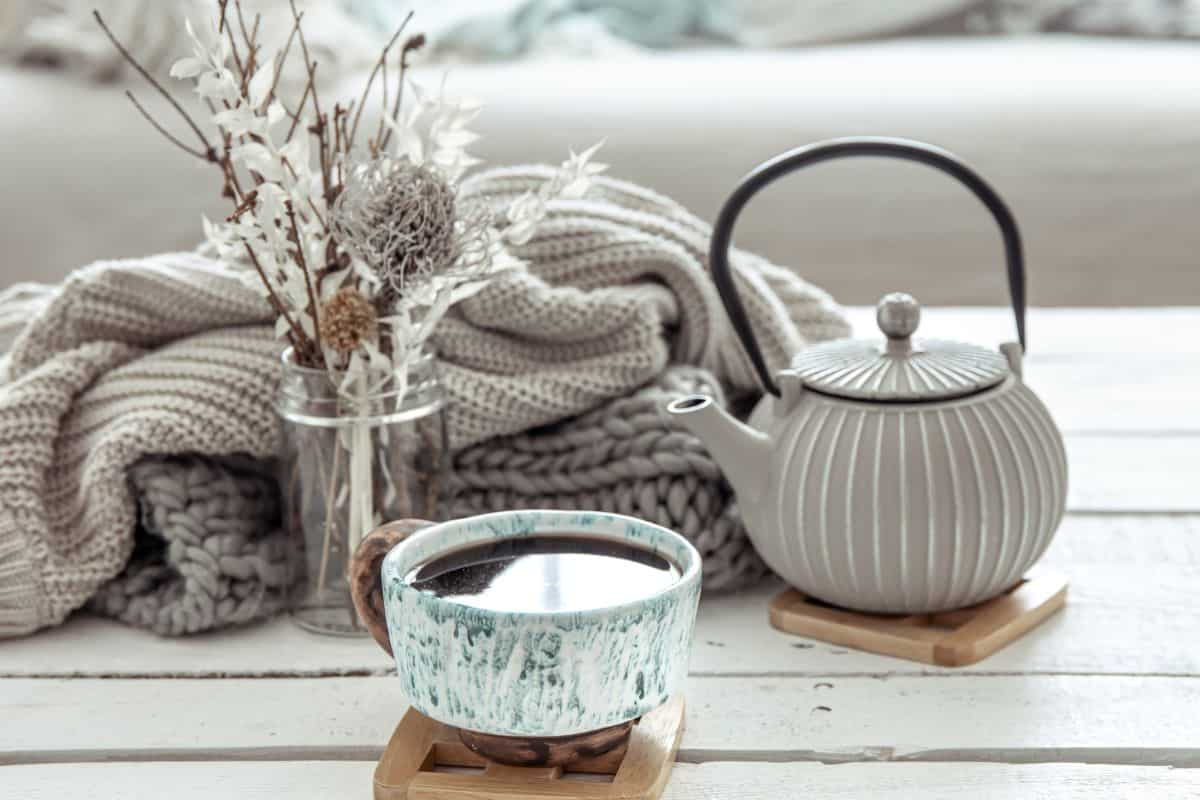
In his book In Praise of Slowness: Challenging the Cult of Speed, Carl Honoré says, “The central tenet of the slow philosophy is taking the time to do things properly, and thereby enjoy them more.”
This quote reminds me of the Danish concept of Hygge. The definition of Hygge is “A quality of coziness and comfortable conviviality that engenders a feeling of contentment or well-being (regarded as a defining characteristic of Danish culture).”
In Little Book of Hygge, Meik Wiking says, “Hygge is about an atmosphere and an experience. It is about being with the people we love. A feeling of home. A feeling that we are safe.”
So is Slow Living like Hygge? Maybe. But I’d say it’s about something deeper and more essential than just feeling good and cozy all the time. It’s about making sure you clear enough clutter in your mind, your space, and your time that you are able to prioritize and promote the things which are most important to you. And of course, enjoy them too!
Our highest values often get lost when we’re running from one place to another, constantly distracting our minds with entertainment because we fear boredom. Let’s break it down a little further.
Slow Living rejects busyness as a value. While there’s nothing wrong with enjoying and pursuing a large variety of activities, be wary of filling up all your time simply because you feel you should.
Slow Living is a commitment to purpose and intentional day-to-day living that aligns with your values. Take a look at how you spend your days and compare it to a list of your highest priorities. Is the time and effort you spend reflecting your values? Are you racing from thing to thing and feeling like you never have time to take a breath?
If that’s the case, you may need to evaluate what you can eliminate to give yourself that space to breathe and re-focus on what’s most important to you. Then, learn to say “no” to things that aren’t in alignment with your priorities.
Slow Living requires mindfulness and focus in the present moment. Take your “boring routines” like laundry, dishes, and getting dinner on the table and turn them into rituals.
I have a bad habit of putting on a podcast or a tv show every time I have a “boring” chore to do. But that constant distraction makes me irritable when I’m interrupted and doesn’t give me the opportunity to clear my mind. I also miss precious opportunities for some free therapy. Doing dishes in the quiet while focusing on the sensory experience of it can be very soothing.
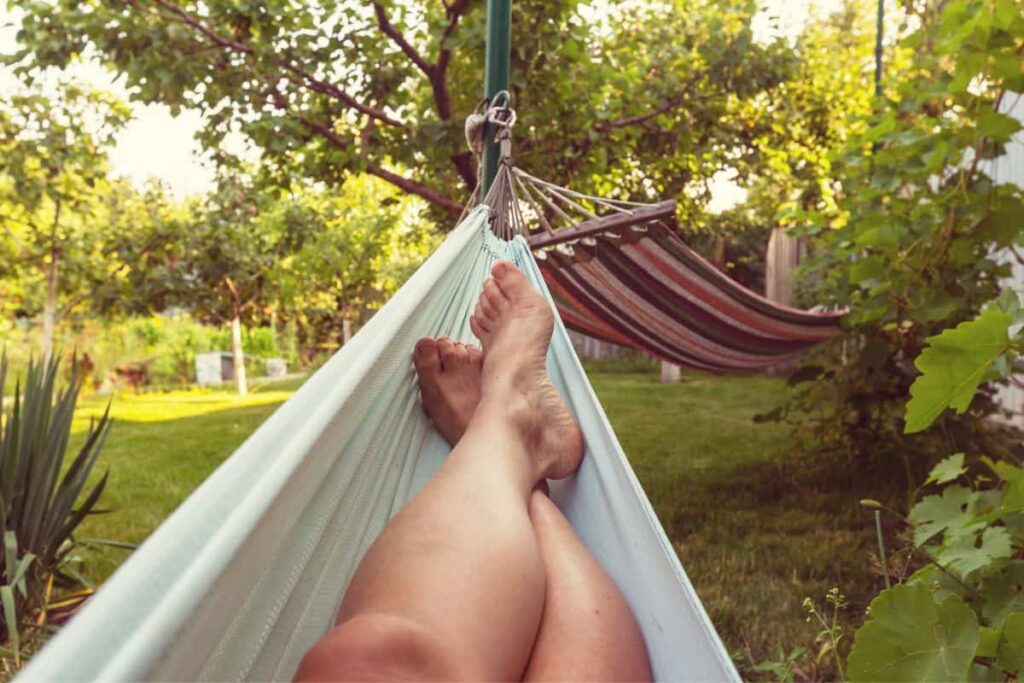
This brings me to the next idea – Slow Living allows you to find joy in simple pleasures. When you don’t feel rushed and like you need to get to the “important stuff,” the daily routines can become their own pleasures.
When I’m always in a hurry, the care of my home and my children starts to feel like an inconvenience. I think most mothers of young children can agree that playing with a toddler isn’t the most thrilling activity, and attending to constant needs doesn’t always feel joyful. But it can be more joyful.
I have the most trouble wholeheartedly mothering my babies when I am focusing on all the other things I feel like I need to be doing instead. In contrast, when I decide that a certain period of time will be devoted to their care and nothing else, I enjoy them more. I also don’t feel like they’re constantly interrupting me and getting in the way of what I should be doing instead.
Slow Living, rather than describing an individual’s circumstances, describes a state of mind and being. It’s a more reflective and self aware approach to daily life.
While Simple Living often describes a homesteading lifestyle (which definitely has specific circumstances attached to it!), a slow mindset can be embraced no matter what lifestyle or circumstances you find yourself in.
Slow Living places a high value on doing things well and thoroughly rather than quickly. I would never argue that it’s impossible to do something both well and quickly. The difference here is placing the emphasis on getting things done quickly, even at the expense of quality.
Finally, Slow Living rejects the concept of “time poverty.” There will always be enough time in a day to do what absolutely must be done. If you run out of time, then what has gone unfinished did not need to be finished.
History of the Slow Movement

The Slow Movement can trace its roots back to the 1980s in Italy. When a McDonald’s was scheduled to open in the Piazza di Spagna in Rome, Carlo Petrini and a group of activists protested by forming “Slow Food.” This movement’s purpose was to defend regional food traditions.
It makes sense that “Slow Food” would protest the opening of a “Fast Food” restaurant, right? But what is Slow Food? Not just food native to a certain area, but the defense of the processes required to celebrate that food. Maybe participating in growing it, or at least sourcing it from local growers – and then lovingly preparing that food from scratch.
This kind of food is more delicious, more nutritious, and more special. What a shame to lose those things in favor of saving a little time.
SLOW has been used as an acronym to describe different aspects of the Slow Food Movement:
- S: Sustainability – eating and/or raising food that has a lower impact on the world
- L: Local – eating locally produced food (whether produced by you or local growers)
- O: Organic – avoiding genetically altered foods, or foods that have been treated chemically
- W: Whole – avoiding processed foods
In 1999, Geir Berthelsen created The World Institute of Slowness. He envisioned a “slow planet,” and saw a need to teach the world the way of slowness. In 2004, Carl Honoré, one of the most well-known authors and speakers on the slow movement, published his book In Praise of Slowness. He describes the slow movement this way:
“It is a cultural revolution against the notion that faster is always better. The Slow philosophy is not about doing everything at a snail’s pace. It’s about seeking to do everything at the right speed. Savoring the hours and minutes rather than just counting them. Doing everything as well as possible, instead of as fast as possible. It’s about quality over quantity in everything from work to food to parenting.”
Carl Honoré, In Praise of Slowness
Myths About Slow Living
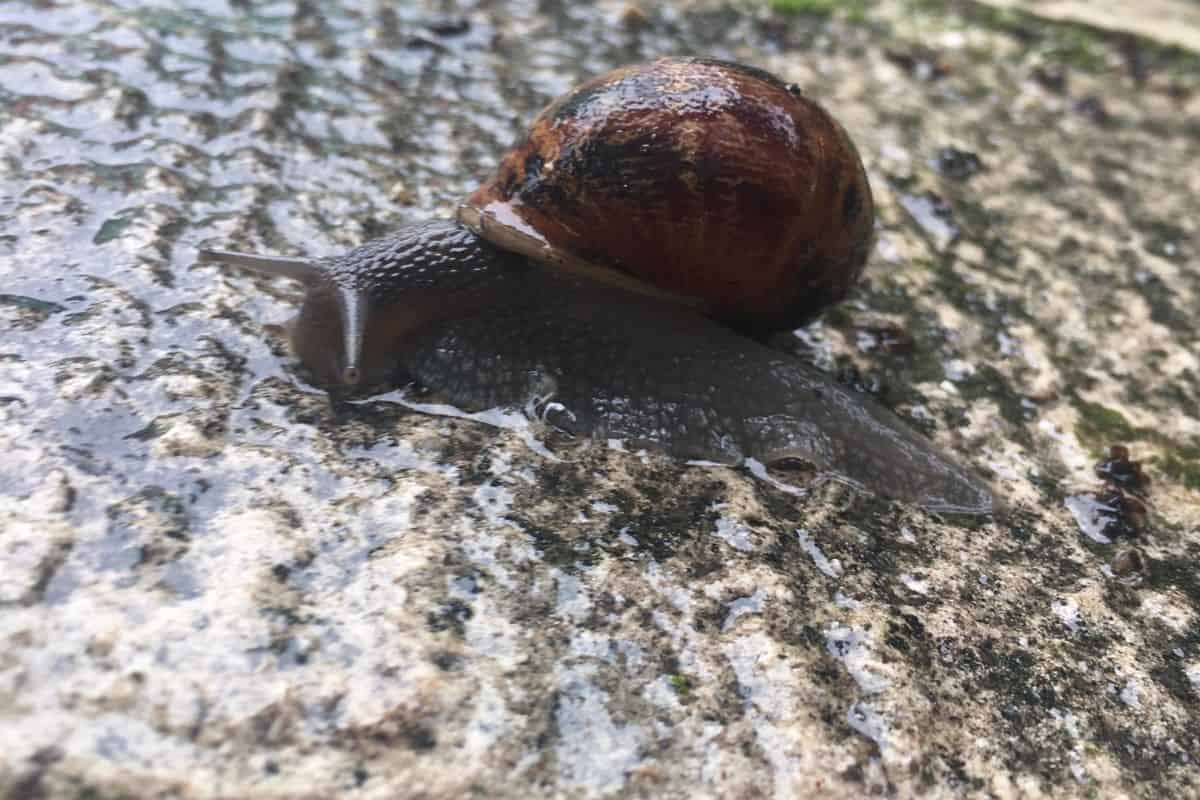
It’s probably easy to believe that in order to embrace Slow Living you have to do everything veeeeerrryyyyy slooooooooowlyyyyyy.
Well, no. As Carl Honoré stated above, this philosophy is not about doing everything at a snail’s pace. Rather, it’s about giving everything its appropriate time and focus to ensure it is done well. It’s about not feeling rushed to do more, but feel at peace doing just enough.
Here are a few other myths surrounding slow living:
- Slow Living and Simple Living are the same. – I’ve already talked about this of course, but it’s worth saying again. There is a lot of overlap here, but the main difference is that Slow Living is a mindset that anyone and everyone can embrace no matter their own physical circumstances, values, or location.
- Slow Living isn’t antithetical to being successful or productive. It’s redefining success (not the typical “more is better” philosophy) and learning how to prioritize your values. Do important things well!
- Slow Living is Anti-Technology. Technology can be great – we just need to make sure that it’s serving us, and not the other way around. Don’t allow technology to distract you from what’s most important – and remember that time away from screens is important!
- Living slowly will mean you have less time. It would make sense to think that if you do all of the things you do but more slowly, you will have less time. That, however, misses part of the whole point. Cut out activities that distract you or keep you from doing things that are more important to you. (Maybe binge-watching Netflix, or scrolling Instagram?) This actually frees up more time for you to re-orient your priorities.
Slow Living Benefits

Let’s take a look at the vast potential benefits of embracing a slower lifestyle.
- Being more present in your day-to-day routines can reduce stress. When I’m feeling more hurried and urgent about everything getting done, I can’t relax. When I’m doing the dishes I’m thinking about how I need to get that laundry done. When I’m doing the laundry I’m thinking about how I need to run an errand. You get the idea. Staying present allows you to do each thing in its own time.
- Focusing on your values and priorities frees up both time and mind space to focus on the most important things – relationships and people. Instead of running around like a chicken with its head cut off, you can set aside time to focus on the people you love most and give them your full attention.
- A slower lifestyle can help you live according to your purpose. When we are so busy and distracted, it’s easy to become more reactive than proactive. We’re living under the tyranny of the urgent and wondering when we’ll get a moment to ourselves. If we slow down long enough to examine what we’re requiring of ourselves and edit the list – we can put more focus and energy into the things that matter most to us.
- Slow Living can lead to better health. When we slow down with food, we eat mindfully and choose our food purposefully. When we reduce our mental load we improve our mental and emotional health. When we make room in our schedules, we lower our stress and anxiety levels.
- Slow Living fosters gratitude. When we slow down, we tone down the level of noise and distraction. We can see all the things we have to be grateful for.
- Slowing down can actually boost productivity. It seems counterintuitive, but when we stop multi-tasking we can better focus on the task at hand. More clearly focused time always results in better quality work.
- By cutting back on time spent on TV and social media, you can re-claim many hours you didn’t realize you had. We all feel like we have so little time. But I know when I see my screen time report at the end of the week, I’m reminded again and again of all the hours that have been spent on activites that are more life-taking than life-giving. I would be willing to bet we all have a lot of hours we could re-claim if we were willing to step back for a moment and evaluate whether screen time should be a priority.
- Slow Living can increase contentment. If you are intentionally choosing to focus on your highest values, you no longer have to worry about keeping up with the Joneses – you can focus solely on whether your life is being lived the way you believe it should be.
- A slower lifestyle can boost creativity. When we’re constantly filling our time and our brains with external input we don’t leave space for our own thoughts and ideas. Boredom is good for us!
- Slow Living increases your self awareness. Slow Living practices won’t happen overnight, it’s a journey. But as you go along you learn to listen to what you need and what your family needs. And hopefully you come to discern where your energy and time need to go!
Ways to Get Started

So if this is a journey, how do I get started? Good question!
I think the very first step is to acknowledge that you are not a victim of your schedule. Busyness is a choice, and you can choose not to be busy.
I fully acknowledge that not everyone’s circumstances are the same, and some people have a lot less margin to work with. If you need to work many, many hours just to get food on the table, it will be hard to slow down.
For folks who feel like this is an impossible ask, just start taking note of where your hours go and see if you can find even 30 minutes a day. Take that 30 minutes to be quiet and come up with some ideas for how you can creatively earn more money so you don’t have to work as much.
Or, come up with some ideas of “must do’s” that may not actually be completely necessary. Define what’s most important to you and draw the line between “should” and “must.” Say “no” to anything that doesn’t fall under “must.”
You may also need to evaluate your standard of living. Maybe you can let go of a few subscriptions (Netflix? Spotify?) to make a little space in the budget to work even a couple less hours a week. Maybe you don’t need to spend as much money on Amazon as you do. Move slowly and steadily toward more simplicity in your lifestyle.
Check out these other ideas and take them in whatever order seems best for you:
- Be mindful and present, even in the mundane tasks.
- Reduce consumption of media and news to decrease distraction and overwhelm.
- Put your life before your work.
- Go outdoors more – it improves your health and allows you to think more clearly.
- Eat your meals mindfully. Focus on the flavors and textures of your food instead of your phone or the TV.
- Take regular technology breaks to cleanse your mental palette and discipline your time.
- Practice saying “no” to things you don’t enjoy.
- Use time blocking in your schedule and do single tasks instead of multi-tasking.
- Slowly de-clutter your living space and your wardrobe so daily choices and tasks are simpler and take less time.
- Plan your meals and try cooking in bulk
- Declutter your digital space – try cleaning out your inbox and unsubscribing from newsletters you don’t read.
- Try growing something. Even if it’s just a simple herb plant for kitchen use, try to nurture the growth of a living thing and engage with the process of seed-to-plant.
- Try entertaining yourself – play solitaire, sing or make music, etc.
- Keep your free time truly free. Free time is not an opportunity to schedule additional things!
- Leave FOMO behind! Don’t worry about it if you haven’t intentionally and meaningfully chosen to pursue it.
- Craft a schedule or routine that you’re excited about doing so your day to day rhythms can be delightful to you.
- Understand that after a certain amount of time, your work becomes less productive. That’s when it’s time to stop!
- Learn to cook from scratch. Convenience is so tempting, but it may not be as necessary after you’ve done some time prioritization. The process of preparing and enjoying food you made yourself is rewarding.
- Find a hobby that isn’t TV or movies
- Be present in special moments and eliminate distraction. Sometimes we even become removed and distracted in the act of trying to capture a moment. It may be better to put the phone away and experience the moment instead of trying to photograph it.
- Consider how the music you listen to, the shows you watch, and the books you read affect your mood. Be wise and discerning about what you choose to consume.
Slow Living Books

If you’re interested in learning more about Slow Living, here are some ideas of books you could read.
- In Praise of Slowness: Challenging the Cult of Speed by Carl Honoré
- The Slow Fix by Carl Honoré
- Essentialism: The Disciplined Pursuit of Less by Greg McKeown
- Slow: Simple Living for a Frantic World by Brooke McAlary
- Destination Simple: Everyday Rituals for a Slower Life by Brooke McAlary
- Soulful Simplicity: How Living with Less Can Lead to So Much More by Courtney Carver
- The Things You Can See Only When You Slow Down: How to Be Calm in a Busy World by Haemin Sunim
- Seeking Slow: Reclaim Moments of Calm in Your Day by Melanie Barnes
Slow Living Quotes
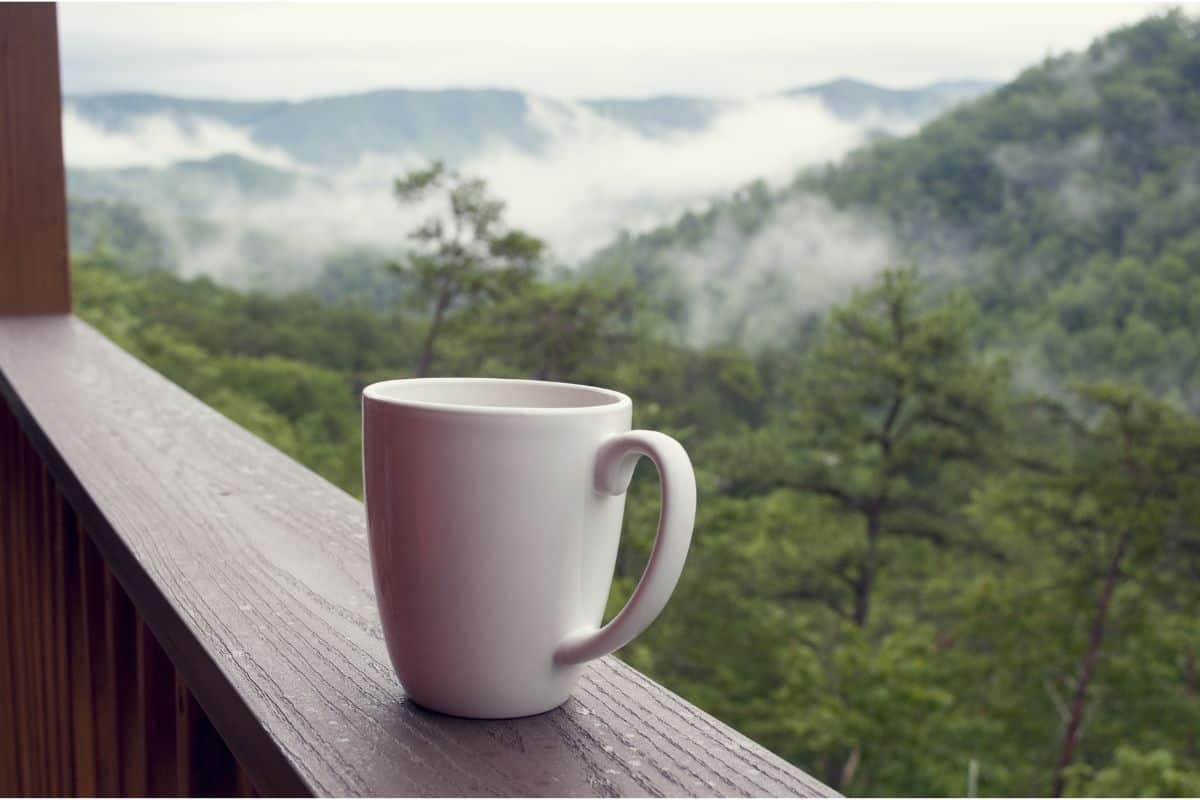
Check out these quotes that can inspire you to live more slowly.
“It’s about knowing and passionately loving the things we value. And designing our lives to spend the most time possible enjoying them. It’s about having intention and consciousness in our activities. About escaping the mindless scrolling and unproductive multi-tasking and focusing on purposeful action.”
Kayte Ferris
“A fast approach tends to be a superficial one. But when you slow down you begin to engage more deeply with whatever it is you’re doing. Speed becomes a form of denial. It’s a way of running away from those more deeper, tangled problems.”
Carl Honoré
“Busyness is, at its core, about misplaced priorities.”
Joshua Becker
“I frequently worry that being productive is the surest way to lull ourselves into a trance of passivity. And busyness the greatest distraction from living.”
Maria Popova
“The greatest wealth is to live content with little.”
Plato
“The best things in life aren’t things.”
Art Buchwald
“Once you learn to detach happiness from acquiring and owning things you can focus on what truly makes you happy—and actually achieve that.”
Peter Walsh, Lighten Up
“While you are alive collect moments not things, earn respect not money and enjoy love not luxuries.”
Aarti Khurana
“The aim should be to obtain the maximum of well-being with the minimum of consumption. The cultivation and expansion of needs, is the antithesis of wisdom. It is also the antithesis of freedom and peace…”
E. F. Schumacher
“I think of all of us, weary in our suburban coffee shops, amassing everything my friends in Ethiopia need but having nothing they want. They have joy. Gratitude. Love. Community. Forgiveness. We have wicker basket organizers, SUVs, and backyard fire pits.”
Erin Loechner, Chasing Slow
“If your home is peaceful, then the other areas of your life, such as your finances, emotions, relationships, and a sense of well-being will reflect that.”
Peter Walsh, Lighten Up
“Many a man thinks he is buying pleasure, when he is really selling himself to it.”
Benjamin Franklin
“Material goods rarely alter our levels of happiness, unlike emotional experience. Having can never replace being.”
Ilsa Crawford
“The cost of a thing is the amount of life which is required to be exchanged for it.”
Henry David Thoreau
“We need more. Not more stuff or money, opportunities or challenges. We need more authenticity. We need more peace.”
Meg Meeker, The 10 Habits of Happy Mothers
“Minimalism is not that you should own nothing. But that nothing should own you.”
Joshua Becker, The More of Less
“Nature does not hurry, yet everything is accomplished.”
Lao Tzu
“A quiet and modest life brings more joy than a pursuit of success bound with constant unrest.”
Albert Einstein
“Beware the barrenness of a busy life.”
Socrates
“Adopt the pace of nature. Her secret is patience.”
Ralph Waldo Emerson
“A person must be selective with their time and energy because both elements of life are limited.”
Kilroy J. Oldster
“There is only today, with holes in our pockets, with time spilling out. We cannot keep it for tomorrow.”
Erin Loechner, Chasing Slow
“People no longer live by sun and moon, by wind and stars, but by some slyly contrived conventions known as clocks and calendars.”
Matthew Goldman
“Take refuge in simple life! You will find three treasures there: Healthy body, peaceful mind and a life away from ambitious fools!”
Mehmet Murat İldan
“Real luxury is not working like a maniac to take an expensive vacation—it is living a life you enjoy every day.”
Kathy Gottberg
“The world is run by worn-out people, and our soul is often lost beneath the piles of our everyday life.”
Emily P. Freeman
“We’re so caught up in trying to do everything, experience all the essential things, not miss out on anything important… Life is better when we don’t try to do everything. Learn to enjoy the slice of life you experience, and life turns out to be wonderful.”
Leo Babauta
“One of the best things you can give your kids is actually free: your time.”
Peter Walsh, Lighten Up
“Ask a bird how to fly, and it might tell you to remove the weight from your wings.”
Erin Loechner, Chasing Slow
“A person who knows who they are lives a simple life by eliminating from their orbit anything that does not align with his or her overriding purpose and values.”
Kilroy J. Oldster
“When the living gets unburdened with needs and desires, the life becomes simple and easy to carry.”
Shashi
“It is not how much we have, but how much we enjoy, that makes happiness.”
Charles Haddon Spurgeon
“That it will never come again is what makes life so sweet.”
Emily Dickinson
“Do the work of naming the highest, eulogy-worthy priorities in your life. Then do the work of putting them at the center of your life, every day.”
Brooke McAlary, Slow
“When we are content, our daily actions are infused with a quiet satisfaction that we share with those around us. We become aware of and responsible for other people’s well-being and they, in turn, for ours.”
Louis Thomsen Brits, The Book of Hygge
“We roam this earthly, privileged soil directionless in a sea of more.”
Erin Loechner, Chasing Slow
“I was rich, if not in money, in sunny hours and summer days, and spent them lavishly; nor do I regret that I did not waste more of them in the workshop or the teacher’s desk.”
Henry David Thoreau
“Being Slow means that you control the rhythms of your own life. You decide how fast you have to go in any given context. If today I want to go fast, I go fast; if tomorrow I want to go slow, I go slow. What we are fighting for is the right to determine our own tempos.”
Carlo Petrini
“Slow living provides an opportunity to step back, pay attention, and question the ways we use technology, to recalibrate our relationship with the constantly switched-on, logged-in world.”
Brooke McAlary
“It takes courage to say yes to rest and play in a culture where exhaustion is seen as a status symbol.”
Brene Brown
“Slow down. Find peace in little moments. Learn what you love, fill your life with it, and watch yourself come alive.”
Sonya Matejko
“The slow philosophy is not about doing everything in tortoise mode. It’s less about the speed and more about investing the right amount of time and attention in the problem so you solve it.”
~ Carl Honore
“The older I get get the more I realize I just need the simple things in life: a comfy home, good food on the table, and to be surrounded by people I love.”
~ Rachelle Glendon
Slow Living Summary
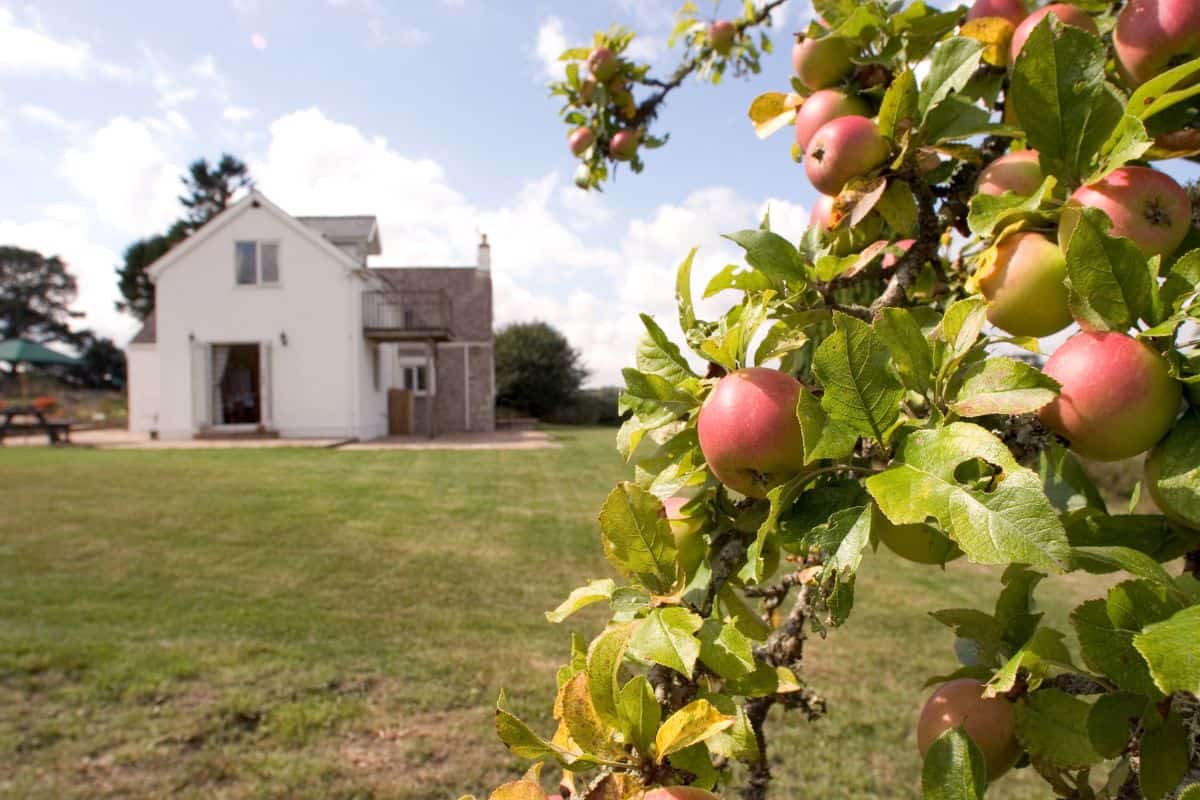
At the end of the day, Slow Living is less how a lifestyle appears on the outside, and more of a personal mentality. The slow living movement resonates with so many people because we are sick of rushing through our lives and feeling the resulting emptiness and lack of purpose.
For me, the most meaningful changes happen in my own life when I step away from my phone.
Marketing is EVERYWHERE you look these days. Social media, television, billboards, food packaging in the grocery store, etc – we’re being bombarded with messaging wherever we go. Even for those of us who are good at recognizing manipulative messaging, it still subtly makes its way into our own perspectives on life.
It talks us into thinking we want or need things that we don’t have, and it convinces us that we don’t have enough. It can even confuse our own values.
I would urge you to step back, slow down, and remember what’s important. Then start living like it matters!!
Leave me a note in the comments to let me know what helps you slow down! I always love to hear from you.








I really enjoyed your article on slow living, thanks!